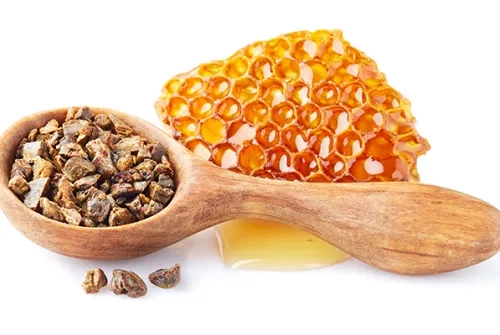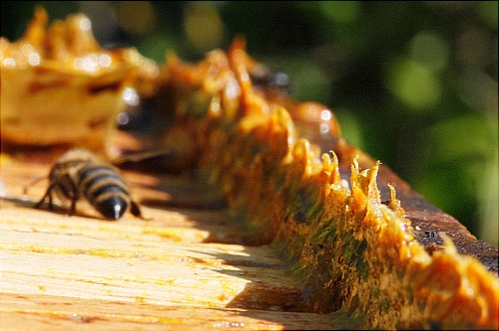Propolis for Kids: A Natural Supplement to Support Growth and Immunity
Propolis for Kids: A Natural Supplement to Support Growth and Immunity
As parents, we constantly search for natural ways to support our children's development, especially in today’s environment where pollution, stress, and seasonal illnesses are on the rise. One increasingly popular natural remedy is propolis, a resin-like substance produced by bees. Known for its powerful antioxidant and antimicrobial properties, propolis can be a valuable supplement to help boost children's immune systems and support healthy growth. In this blog post, we’ll explore what propolis is, how it benefits kids, and the best ways to include it in their daily routine.
What Is Propolis?
Propolis is a sticky, dark brown substance made by bees from tree resin and their own enzymes. Bees use it to seal and protect their hives from bacteria, viruses, and fungi. Rich in flavonoids, vitamins, and minerals, propolis has long been used in traditional medicine for its immune-boosting and healing properties.
Key Benefits of Propolis for Children
1. Strengthens the Immune System
-
Natural Defense: Propolis enhances the body’s natural defenses by increasing the production of antibodies.
-
Antiviral and Antibacterial: It helps fight off colds, flu, and other common childhood infections.
-
Great for Seasonal Transitions: Especially useful during flu season or when kids are frequently exposed to germs at school.
2. Supports Respiratory Health
-
Soothes Sore Throats: Propolis sprays or lozenges can relieve irritation and inflammation.
-
Reduces Infections: May reduce the frequency and severity of ear, nose, and throat infections.
3. Promotes Oral Health
-
Protects Gums and Teeth: Propolis is known for its antibacterial action, helping to prevent cavities and gum inflammation.
-
Natural Mouthwash Option: Can be used as a safe and effective mouth rinse for kids.
4. Rich in Antioxidants
-
Cell Protection: The flavonoids in propolis help neutralize free radicals that can damage cells.
-
Overall Wellness: Contributes to better energy levels and general vitality.
Is Propolis Safe for Kids?
Yes, propolis is generally safe for children when taken in appropriate doses. However, it’s important to:
-
Check for Allergies: Kids allergic to bees or bee products should avoid propolis.
-
Choose Child-Friendly Products: Look for propolis supplements specifically designed for kids (e.g., alcohol-free syrups or chewables).
-
Consult a Pediatrician: Before starting any new supplement, especially if your child has a medical condition.
How to Incorporate Propolis into Your Child’s Routine
-
Propolis Syrup: Easy to mix with juice or take on its own.
-
Chewable Tablets: Fun and convenient for kids to take daily.
-
Spray: Perfect for sore throats or as a preventive measure during flu season.
-
Gummies: Often combined with other immune-boosting ingredients like vitamin C or zinc.
Tips for Choosing High-Quality Propolis Products
-
Natural and Pure: Avoid products with artificial additives or unnecessary fillers.
-
Alcohol-Free: Especially for younger children.
-
Tested for Safety: Look for brands that offer third-party testing or quality certifications.
Final Thoughts
Propolis is a natural powerhouse that can support your child’s immune system, oral health, and overall well-being. With its wide range of benefits and availability in kid-friendly forms, it’s a great addition to your child’s health routine. As always, consult with a healthcare professional before introducing any new supplement. With the right guidance, propolis can become a reliable part of your family’s wellness toolkit.
Amazon best seller






Comments